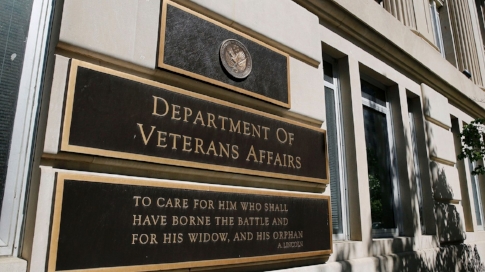5 Ways to Help Veterans Get The Care They Deserve (Despite the Veterans Affairs Mess)
It turns out vetting isn’t the Trump Administration’s strong suit.
This week, embattled Secretary of Veteran Affairs nominee Rear Adm. Ronny Jackson withdrew from consideration amid allegations of gross misconduct (you know, drinking on the job, mishandling pain meds, crashing a government vehicle, that kind of thing.)
While Jackson has yet to respond to all the allegations leveled against him, he’s declared his innocence.
The accusations came to light on Wednesday in the form of a two-page summary crafted by Democratic staff on the Senate Veterans Affairs Committee. All the gritty details were shared by nearly two dozen of Jackson’s current and former colleagues.
For those keeping track at home, President Trump’s nominations for Navy secretary, Army secretary, and labor secretary also bit the dust in spectacular fashion.
But the stakes are especially high at the second-largest Cabinet agency (second only to the Department of Defense), serving about half of nation’s 18.5 million veterans.
Millions of veterans are waiting for someone - anyone - to address the agency’s massive patient backlogs, inadequate care, failures in vetting medical practitioners (hi Ronny!), and other problems.
Our veterans deserve better.
How to help veterans get the care they deserve
1. Support ways for veterans to tell their stories.
Too many veterans are seen as expendable upon completion of their enlistment. To combat this, the Library of Congress has introduced the Veterans History Project as a means to immortalize their accomplishments and keep their stories alive. You can share your own story or collect an interview.
2. Send a care package or a letter.
Operation Gratitude has blessed over 1.5 million active duty members, wounded warriors, veterans, and even their caregivers with packages. And their letter writing campaign is an excellent way to bring a smile to a veteran’s face.
3. Donate to organizations that champion veteran causes.
Examples include Disabled Veterans, the National Veterans Wellness and Healing Center, and This Able Veteran.
4. Volunteer at a VA Hospital.
For many veterans, VA Hospitals are a source of fear and anxiety. So by volunteering your time you can make a tremendous difference.
5. Call your elected official.
The House Committee of Veterans' Affairs is responsible for recommending legislation and addressing existing laws in relation to veterans' benefits. You can reach Chairman Phil Roe at 202.225.3527 to express your concerns.
You may also want to check in with your own Senator and Representative via the US Capitol switchboard: 202.224.3121. Let them know that too much of the treatment and care that veterans receive is unacceptable.





